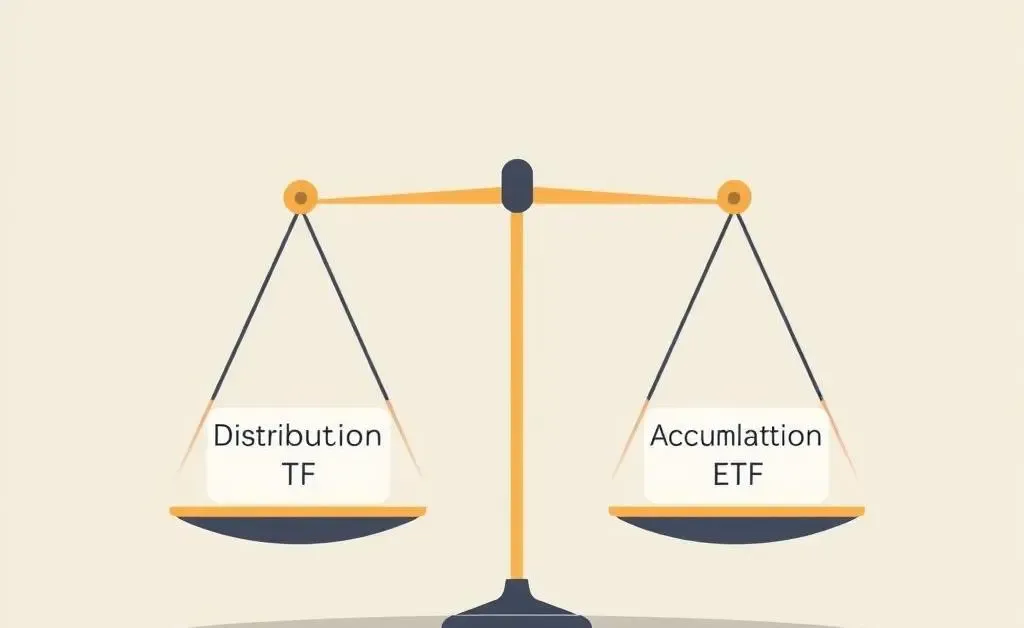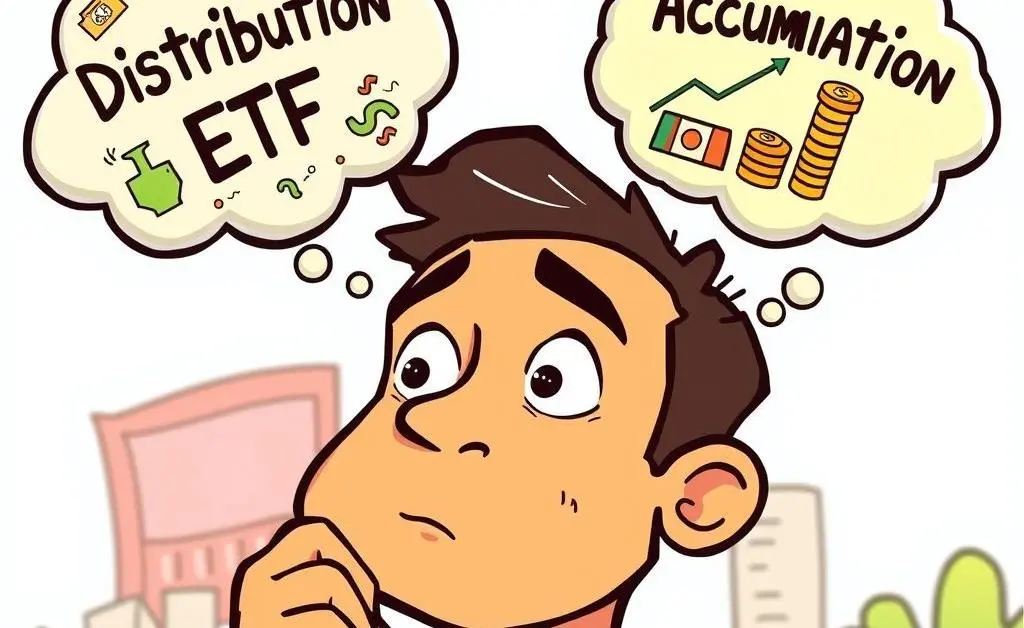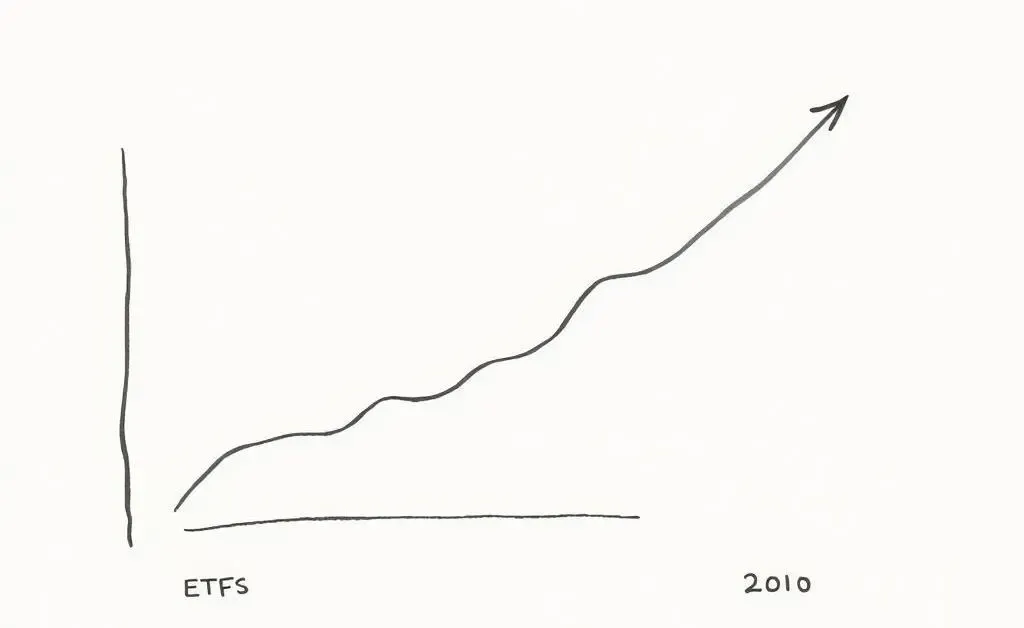Understanding Distribution vs. Accumulation ETFs: Which is Right for You?
Explore the differences between distribution and accumulation ETFs to make informed investment decisions.

When it comes to investing in ETFs, one of the most common questions is: 'Should I choose a distribution or an accumulation ETF?' It's a little like ordering coffee — some like it sweet (distribution), others prefer it black (accumulation). Both have their merits, so let's dive deep into the differences and help you decide what's best for you.
Distribution vs. Accumulation ETFs: What's the Difference?
The primary difference between distribution ETFs and accumulation ETFs lies in how they handle the income they generate. Distribution ETFs pay out the income in the form of dividends, whereas accumulation ETFs reinvest this income back into the fund. This can mean a significant difference in tax implications and growth potential.

Why Choose Distribution ETFs?
If you're looking for regular income from your investments, a distribution ETF might be the right choice. These funds are great for retired investors or those who'd like a steady stream of income to cover living expenses. However, be aware that receiving dividends might mean handling more paperwork come tax time.
Why Choose Accumulation ETFs?
Accumulation ETFs, on the other hand, are tailored for growth-oriented investors. By reinvesting earnings into the fund, they capitalize on the power of compounding. What does that mean for you? It could lead to greater growth over the long term. It's a bit like letting your investments silently work behind the scenes — no extra cash flow to deal with, and you might thank yourself for it years from now.

Should You Choose Accumulation or Distribution ETFs?
The choice between distribution and accumulation ETFs is all about your financial needs and goals. If you're still building your wealth and have a long investment horizon, accumulation ETFs may better suit your strategy. Conversely, if you prefer accessing the income generated by your investments now, distribution ETFs are likely more up your alley.
Final Thoughts
Remember, there's no one-size-fits-all answer. Your choice should align with your individual financial situation, goals, and tax considerations. It's always a wise practice to consult with a financial advisor to gain personalized insights.

So, what do you think? Are you Team Distribution or Team Accumulation? Let us know your thoughts and experiences and let's continue the conversation.




